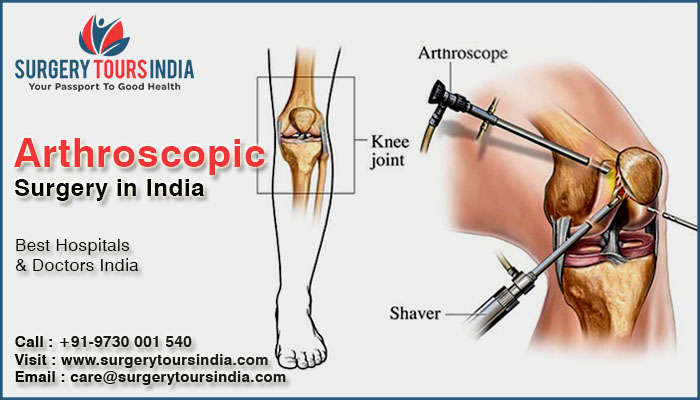Coronary Angiography Treatment in India
SurgeryToursIndia.com
A coronary angiography is one of the more advanced diagnostic imaging tests that use an x-ray device to determine the presence of plaque in the coronary arteries. This plaque is formed due to accumulation of a hard and waxy substance inside the arteries. Excessive build-up of plaque is a cause for a CHD (coronary heart disease) which is a serious cause for angina (chest pain).
How does a Coronary Angiography works?
A coronary angiography is simply a specialized x-ray imaging test that is very useful in determining the presence of plaque build-up in the main arteries that supply oxygen-rich blood to the heart.
This test requires the doctor to use a special dye and an x-ray device to check for narrowing, or even blockage, in the artery that might hinder the smooth supply of blood to the heart and other parts of the body.
This is a very efficient and successful diagnostic technique to determine the presence of plaque in the arteries and thus helps prevent or treat a coronary heart disease.
Coronary Angiography procedure
A coronary angiography procedure uses a process called cardiac catheterization and specialized x-ray tests in combination to check for obstructions and narrowing of the arteries from the inside.
The procedure starts with the cardiac catheterization in which the cardiologist will inject a special dye in the blood stream through the coronary arteries. This is performed using a small and thin flexible tube (catheter) that is inserted into your arms, thigh or neck. This catheter is then guided through to the coronary artery and the dye is injected into the blood stream.
The special dye gives a clearer and more vivid x-ray imaging in which the cardiologist is able to see your arteries in great detail.
The basic procedure for a coronary angiography begins with the cardiologist administering a local anesthetic to numb the catheter insertion area. After this the cardiologist will use a needle to make a small (keyhole) incision in the blood vessel in order to insert the catheter into the artery.
The doctor will use an x-ray imaging device to help guide the catheter through the blood vessel till it reaches the heart. Once the catheter is in its proper position the cardiologist will begin injecting the cye into it. The dye mixes with the blood and flows through the coronary arteries and makes them distinctly visible on the x-ray.
In case the cardiologist detects blocked/narrowed arteries during the catheterization they will use a PCI (percutaneous coronary intervention), commonly known as a coronary angioplasty, to expand the narrowed or blocked artery in order to restore normal blood flow in it.
The cardiologist then removes the catheter from the insertion hole and closes the incision in the blood vessel with bandages.
Who needs a Coronary Angiography?
Mostly, people with signs and symptoms of a CHD (coronary heart disease) are advised by the cardiologist to undergo a coronary angiography.
These are the commonly seen signs of a CHD:
Angina: This is a form of chest pain that arises out of no reason. This pain may spread to the shoulders, neck, jaw, arm or the back.
SCA (Sudden Cardiac Arrest): This causes your heart to suddenly stop beating.
Abnormal test results: Diagnostic tests such as EKG (electrocardiogram) and exercise stress test, etc show abnormal results.
Coronary angiography may also be recommended as an emergency diagnostic test in case of a heart attack. This test helps the cardiologist plan the best course of treatment for you in case you have suffered a heart attack and are experiencing chest pain and a severe risk of heart failure.
What are the complications associated with a Coronary Angiography?
A coronary angiography is a normal diagnostic test and rarely causes any kind of complication afterwards. These are the rarely seen complications associated with a coronary angiography:
- Bleeding
- Infection
- Pain at insertion site
- Blood vessel damage
- Allergic reaction to dye
- Irregular heartbeat (arrhythmias)
- Kidney damage due to dye
- Blood clots
- Low blood pressure
- Accumulation of blood/fluid around the heart
Connect with SurgeryToursIndia.com for a Coronary Angiography in India
India has a large network of cardiac specialty hospitals and clinics that are spread across all its major cities such as Delhi, Kolkata, Chennai, Mumbai, Nagpur, etc that are equipped with the best and most modern medical and surgical instruments. These global-standard hospitals and clinics share a long association with SurgeryToursIndia.com and have had the highest success rate for performing large numbers of coronary angiography throughout the year. SurgeryToursIndia.com will take care of your complete travel and treatment itinerary to ensure that you have the best and most efficient coronary angiography at the most affordable prices.
Also Read: Coronary Angioplasty in India
For more information, medical assessment and medical quote send your detailed medical history and medical reports, as email attachment to:
Email:- care@surgerytoursindia.com
WhatsApp or Call: +91-8882921234 | +91- 9730001540
 |
| Coronary Artery Bypass Graft Surgery (CABG) |
Tags: coronary angiography in India, coronary angiography cost in India, coronary angiography price in India, Coronary Angiography, CT Angiography, Coronary Catheterization, Coronary Angiography Procedure, Coronary Computed Tomography Angiography










No comments:
Post a Comment